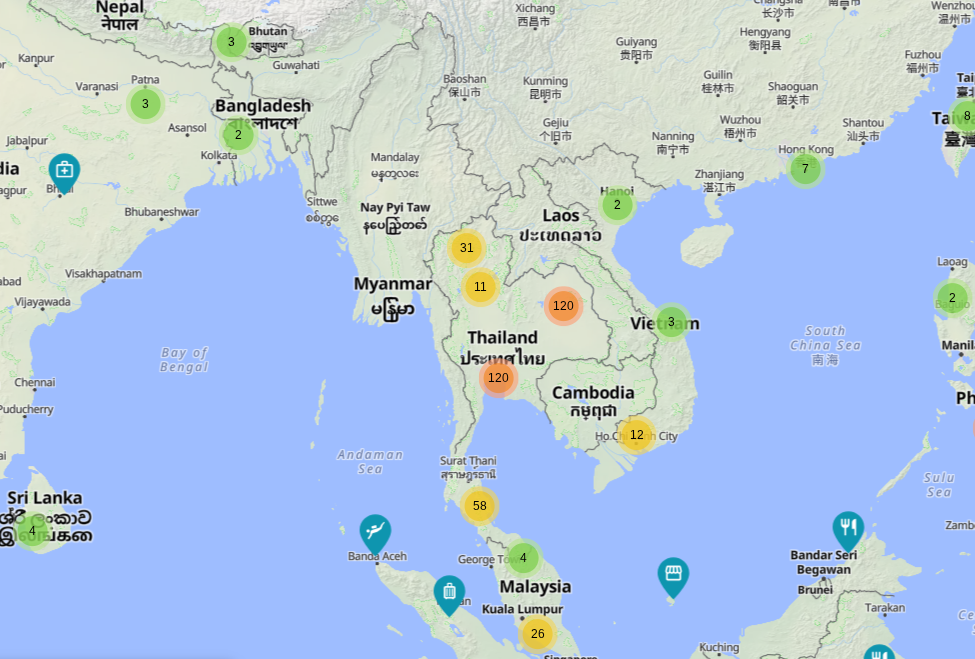
Crypto in Thailand: What’s Actually Allowed Now?
Thailand has been making headlines in the crypto world lately. Most of them say the same thing: “Tourists are now allowed to use digital assets in the country.”
But what does “allowed” really mean?
I remember seeing a “Bitcoin accepted here” map back in 2017, and Thailand already stood out. It still does today compared to neighboring countries - just take a look at this map. But that’s not thanks to any government approval.
People in Thailand have been accepting Bitcoin for years, without waiting for official permission. I’ve even shared before about a local service that lets you pay with BTC - even at places that don’t accept crypto directly.
So what is the government actually allowing now?
Licensed companies may now offer exchange services for tourists - converting five specific crypto assets (BTC, ETH, XRP, XLM, and USDT) into Thai baht. But along with this permission comes a list of prohibitions:
- No direct payments for goods and services in crypto
- No exchanging other cryptocurrencies
- No peer-to-peer exchanges - only via licensed intermediaries
Sounds like more bans than permissions, doesn't it?
Honestly, I wouldn’t be surprised if most of the crypto-friendly spots on the BTC merchant map end up disappearing soon.
Still, some in the crypto community see this kind of regulation as a positive step - clear rules, legal clarity. What do you think? Would you travel to Thailand with a crypto wallet instead of a bank card?
If you do, just remember - only BTC, ETH, XRP, XLM, and USDT are exchangeable on the ground.
But if you're holding something else - no worries. You can swap any of 10,000+ crypto assets for one of those five instantly and at the best rate on rabbit.io.













